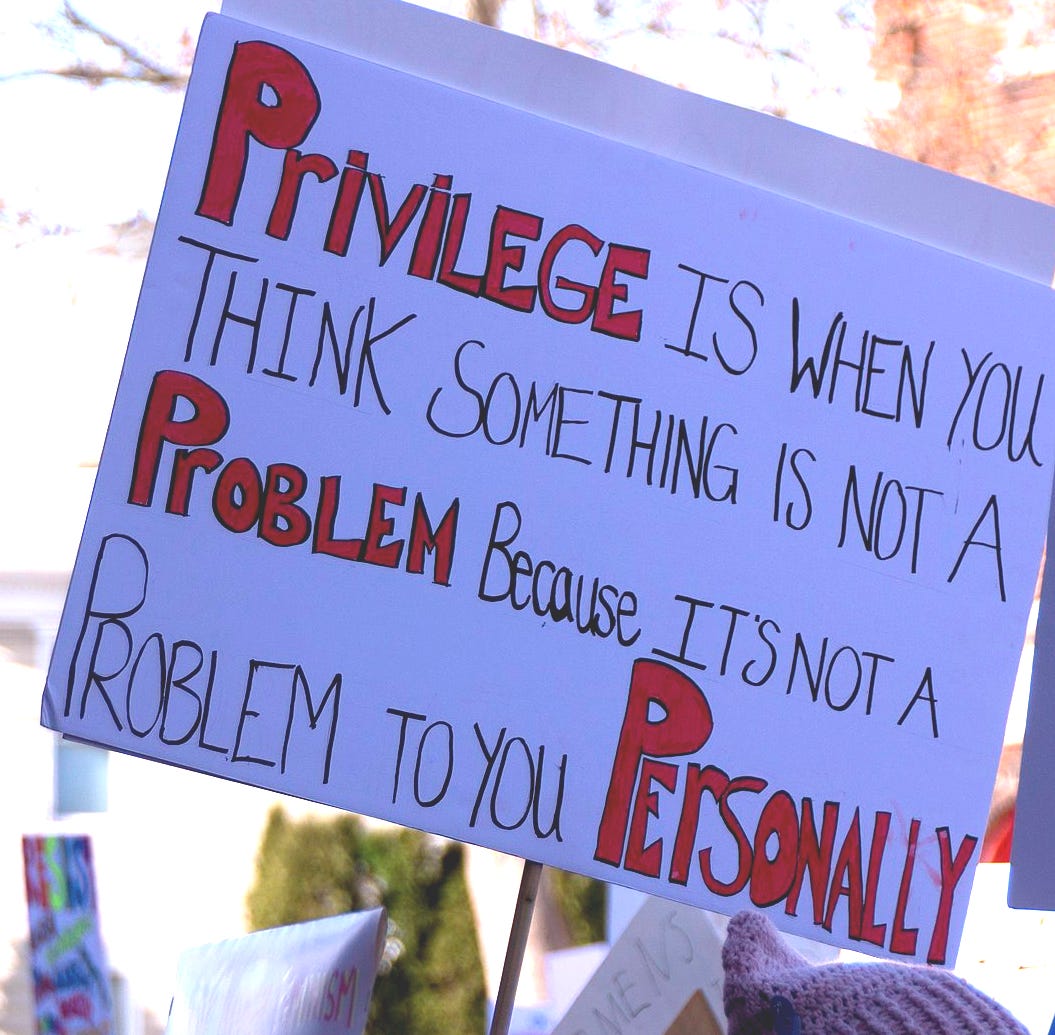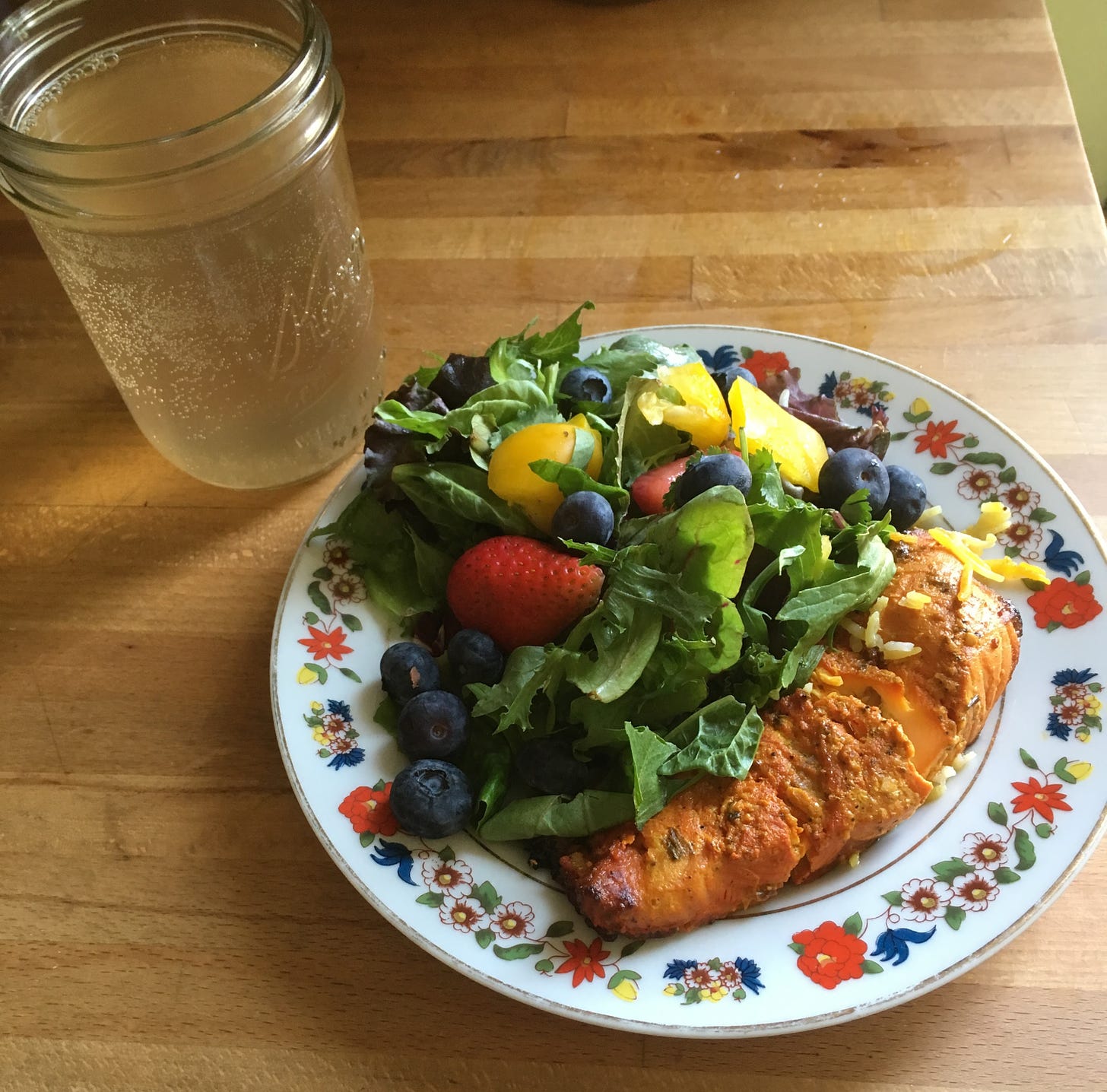Maybe Auntiehood Isn't the Real "Having It All"
Recently I wrote that Auntiehood is the real "having it all." Consider this my counterpoint.
Welcome! I’m Lisa Sibbett and this is The Auntie Bulletin, a newsletter for people who are significantly involved in helping to raise other people’s children. You can read my archive here. If you appreciate reading this newsletter, please consider becoming a paid subscriber for $5 a month or $50 for the year. You can also support my work by “liking” this post below. It only requires a click on the little heart icon, and it helps other people find my Substack.
A quick content warning before we get started: This post is about infertility and multiple pregnancy loss.
In my earlier post this week, I argued that Auntiehood is the real having it all because Aunties get the joy of having kids in their lives, and the joy of getting to leave the kids with their parents while we go off and do childless people stuff.
But then I had some conversations that reminded me how painful it is when you want to have kids and can’t. I am still finding my level, my voice, and my audience with this newsletter, and although I want it to be for a wide range of people who are involved in helping to raise other people’s children, this week I wrote about my own experience and didn’t think enough about other people’s. That’s not what I want, so today I’d like to complicate the perspective I shared on Monday. I would love to have you weigh in on how much of your own experience of Auntiehood (or Auntie-adjacency, or Auntie-aspiration) has been joyful, and how much has been difficult. But first I’m going to share my own infertility story.

In 2018, when I was 38 years old, my partner and I started trying to have a baby. I was afraid that I might be too old, but my doctor was reassuring, and after only a few months, I got pregnant. Although the conventional wisdom is to wait to tell friends and family until after the first trimester, we wanted to include our parents and close friends in the news. Two of my friends were also pregnant at the time, and I was excited to have babies together, excited to watch our kids grow up together and maybe become friends themselves. A friend gave me Angela Garbes’s wonderful book, Like a Mother, and I inhaled it in one sunny afternoon.
The morning sickness was rough, but when it started abating before the end of the first trimester, I wasn’t grateful – I was afraid. I was familiar with the wisdom that a nauseated pregnancy equals a healthy baby (something having to do with hormone levels). My partner and I went in for an ultrasound, and there was no heartbeat. Did you know that many OB/GYN offices have a private back exit for people who are sobbing as they leave? If you’ve lost a pregnancy, you probably do.
We got married soon after my first miscarriage, a few different events for different groups of people, and the main thing I remember is wanting to cancel my own wedding celebrations. I wasn’t able to get up and say thank you to people for coming. I barely spoke to people who had traveled across the country to be there. I sat off at the far edge of the party and only talked to whoever walked over to me. When I see photos of myself at those events, I am surprised I managed to smile.

Over the next fourteen months, I got pregnant three more times. Each time there was no joy, only fear. Each time, doctors told me not to worry. Many tests were run. No problems were detected, either with my physiology or my partner’s. Each time, I lost the baby before the end of the first trimester. After the fourth time, I knew I couldn’t go through it again.1
We explored IVF, but the highly-respected clinic we visited felt like a pushy used-car dealership. We had never figured out what was causing my pregnancy losses, there was a good chance IVF wouldn’t prevent it, and I remember telling friends that I didn’t want to spend $35,000 to have a miscarriage when I could have one for free.
We started pursuing open adoption next, a complex process that took many months to even initiate. By then, we were in the first year of the COVID-19 pandemic, and everything was feeling like a lot. We found ourselves procrastinating the final tasks to get into the prospective adoptive parent pool. We decided to take a six month break. Long and agonizing story short, after six months we decided not to become parents.
These days, I am almost always happy with our choice. I have written already about what I love about Auntiehood, including what I love about not having my own children, and I anticipate continuing to surface that pretty often. This is because I want people, especially women, to be able to make informed and enthusiastic choices about having kids, not default to parenthood because it seems like the next life milestone (or because a vice presidential candidate tells them to). In the meantime, to support readers to make an informed choice about whether this newsletter is a good fit, I want to be upfront with you about both my past pain and my current contentment.
But I’ll tell you when my heart still gets a hard wrench. Remember those two mom friends who I was excited to be pregnant with? Their babies just started kindergarten recently, and those two kids are indeed good friends. Every time I see them playing together, I see the outline of another child ghosting along behind them, one who I hoped would also one day run around covered in dirt, waving sticks and hollering. I miss her.2
There are so many important parts of my story that I’ve left out: what it was like to miscarry (heartbreaking and very painful and borderline traumatic); how I was treated by my healthcare providers (surprisingly thoughtlessly); what people said to me along the way (all kinds of things they didn’t know would hurt me); why we decided not to adopt (maybe I’ll get into that some other time). But I’m going to wrap it up here so I can hand it over to you.
What is your ratio of joy to sorrow when it comes to having kids in your life? Are you happy with the way things have unfolded for you, family and kid-wise? If there were something that could be different for you, what would it be?
We met a woman at a training for prospective adoptive parents who had had eleven miscarriages. I just – I cannot.
I had a feeling this baby was a girl, but to be clear, I would’ve supported whatever gender they turned out to be.




Lisa,I identify as childless-not-by-choice after five miscarriages much like you described your miscarriages – easy to get pregnant, hard to keep them. Having seen their heartbeats, then having those visits were there is no heartbeat… That trauma will always be there inside me. I haven’t gotten to the place where I’m happy to be childless. Although I am an aunt to more than 75 people, it does not fulfill the loss that I feel in my day-to-day life. Being the youngest of 10 children and growing up with my nieces and nephews, I hated being called “aunt”, so it has a negative connotation for me from the get-go. I have a special capacity to give, maybe because I have this extra space available, or maybe because I long for connection that is not satisfied as those are in a nuclear family. I know it is valuable to celebrate our “auntie” role. Sometimes it just feels like you don’t get the good stuff. so my ratio of good to sorrow would be 1:5 at the moment, but I hope life will bring new opportunities to improve on that ratio! Thanks for your post!
I am NOT childfree but my son is not genetically related to me (donor conceived, carried by a gestational surrogate). I had to accept that I could not/should not have genetic children at a very early age. I grieved at the doctor's office when he told me ("you SHOULD NOT HAVE CHILDREN" he said when I was 15 or so). In many cultures, there's A LOT of push to have kids (read: genetic children) and to do it ASAP after you get married (don't even THINK about not getting married at all). The older generations are SO stuck in a certain mindset!!!